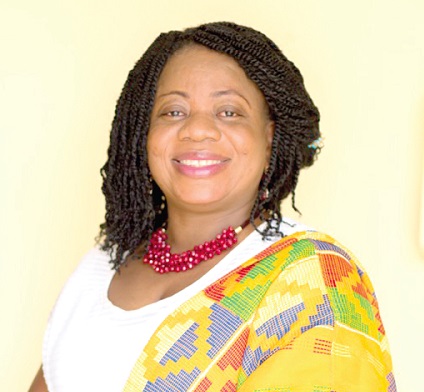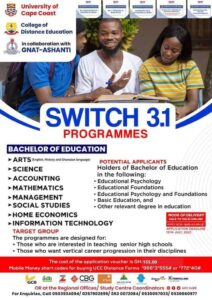Breaking biases, harnessing gender in TVET for prosperity

Breaking biases, harnessing gender in TVET for prosperity

Technical and Vocational Education and Training (TVET) is the procedural process of instruction that prepares students for skilled work.
The skills taught range from various aspects of industrial work to skilled craftsmanship, handicrafts among many others. TVET is popular in many countries because of its affordability and expedited completion.
This type of education may focus on teaching workplace skills for immediate monetary returns. The issue of gender inequalities has been harped on for decades. Yet, across society, the lip service lingers, accounting for the yawning gender gap and the rather slow progress in the key area of TVET.
Biases
There are many biases that have hampered the efforts of gender advocates and sponsors who have been pushing for equality.
The social orientation of many people towards female TVET is that women may be preparing for hard labour jobs they are not suited for when those women choose some courses such as construction and engineering.
This is quite pronounced in developing countries where many people still see women as weak and unable to fit in some high-energy roles.
Biases have been found in many places where policy inconsistencies, from central government, state governments and Metropolitan, Municipal and District Assemblies (MMDAs) have hampered equality in TVET or demotivated aspiring sponsors. This has been so in many countries in Africa and Asia.
The curricula in schools of many countries are at variance with what policymakers tout as equality in TVET. The curricula do not reflect the penchant towards equality.
Some girls in a TVET workshop
The course content and the practical components may be restrictive to female entrants into TVET. Teachers and instructors render their teaching as if every student is the same; there are no differences of attention in teaching and learning. Even if equality is worked into school curricula, its practice is not inculcated early enough, and this inhibits gender equity in TVET.
SDG 4
According to the UN Secretary General’s High-Level Panel on Women’s Economic Empowerment, a considerable increase in women’s participation in the labour market could increase global GDP by $12 trillion by 2025.
The Sustainable Development Goal Four (SDG 4), as contained in the UN’s Agenda for Sustainable Development 2030, posits the dire importance of vocational education and training and increasing the number of youth and adults who have the required skills for employment and decent jobs; and stipulates this in 10 targets.
This SDG also seeks to eliminate gender disparities and ensure equal access to all levels of education and training. As communities put equity concepts, career and life planning in their TVET curriculum early on, the girl-child learns to appreciate the subjects early in life.
National policy
National policy initiatives have been known to promote equality in the US, UK, Sweden and many other successful countries. Regrettably, in many African countries, the story of TVET and girls is a story of double agony; girls and women remain marginalised and TVET remains an afterthought and an appendix to nobler disciplines.
In Ghana, some gains have been made in terms of consciousness about gender biases and how these can be addressed.
However, in practical terms, we have not seen much of consistent policy translating into breaking the bias, and much of our touted achievements in this area borders on tokenism.
After nearly five years of implementing the all-important Free Senior High School (SHS) policy, Ghana recently announced an extension of the policy to cover TVET.
It is expected that national strategic planning will create a communal framework to advance this cause with gender equity and encourage all stakeholders to run with the vision. Ghana must seize the opportunity to make this work across various sections of our national socio-economic life.
Human resource
Human Resource (HR) departments of organisations should break these far-reaching biases by giving equal opportunities to all genders to be recruited into technical roles.
Recruited workers are guaranteed equal pay for the same work done, and all workers also assured of the same promotional and development prospects regardless of their gender.
Continuous education can break many of the biases. Gender champions, women’s groups and organisations that handle education and gender can lead the national discussion on promoting equality for sustainable development.
Next to education is legislation. Legislation which gives both genders equality in enrolment, access and work in technical and vocational roles without fear of suppression. This will reduce stereotyping. The legislation alongside education and sensitisation will also destroy attitudes and misconceptions that confront equality.
The issue of what constitutes appropriate career choices and sex roles will be replaced by the resolve that even women can choose any career because they have the interest and ability to deliver, and not because their being women restricts them from certain careers.
Some of the limitations are internally self-imposed based on cultural messages girls receive. Family influences affect vocational enrolment and career choices. It is strange that teachers, counsellors and fellow students who should be at the forefront of driving equality rather work against it.
Also allied to the work of HR departments and their impact on equality is that hostile work environments can discourage enrolment of females to TVET. National policy and labour/trade unions should address the issue of technical roles and their work environments.
Mentorship
Mentors and role models have significant contributions to make to break every bias in equality of TVET. Gender advocates and TVET practitioners could mainstream mentoring in their work. Mentors will remove the barriers very quickly. Role models will generate interest and commitment from students in prospects that years of education might not do.
Increased interest in technical and vocational skills will leverage a pool of talents for our industries in ICT, engineering, construction and other areas and also promote the economic and social development in our communities.
If we must reach sustainability tomorrow, the time to remove all the barriers to equality is now. The biases must be completely defaced if there will be some sustained equality.
On this occasion of International Women’s Day, all of us stakeholders must work hand in hand to prioritise TVET, especially among girls and women and reward TVET jobs appropriately.
Let us act beyond the rhetoric. Together, let us break the biases against girls and TVET; we all will be winners and humankind will be better for it.
The writer is the first female Rector of a Polytechnic in Ghana, a former Vice-Chancellor of Koforidua Technical University and the consultant on the CoL/ATUPA Project to increase girls’ and women’s participation in STEM-TVET in Africa.
Source: Graphiconline.com




